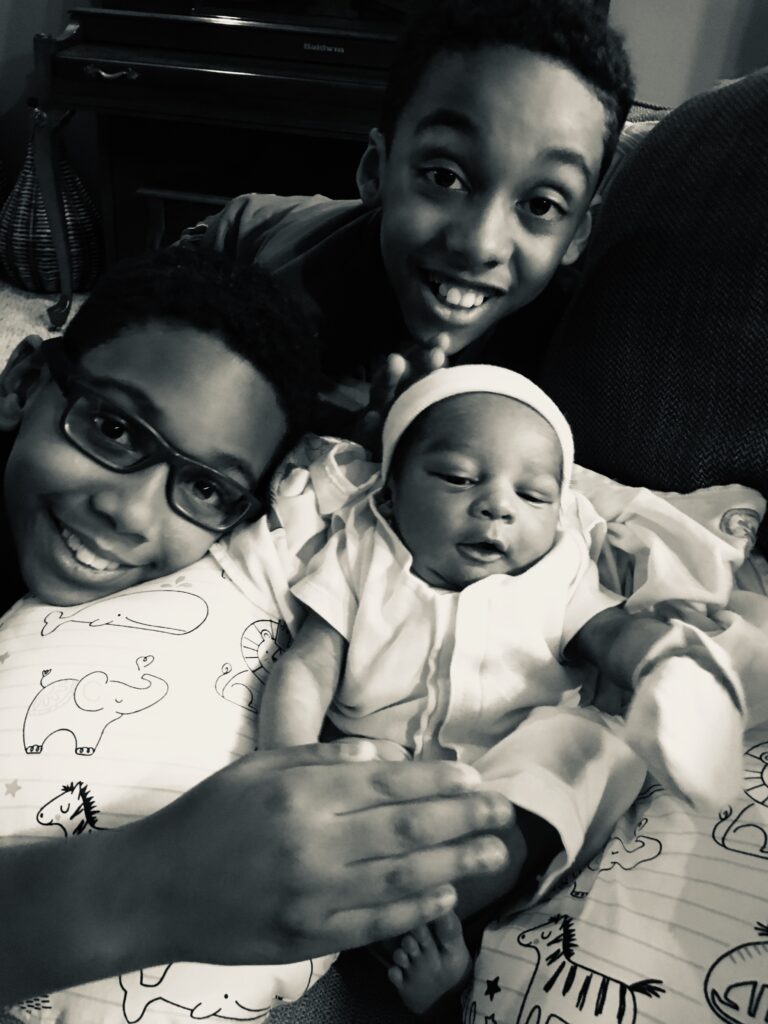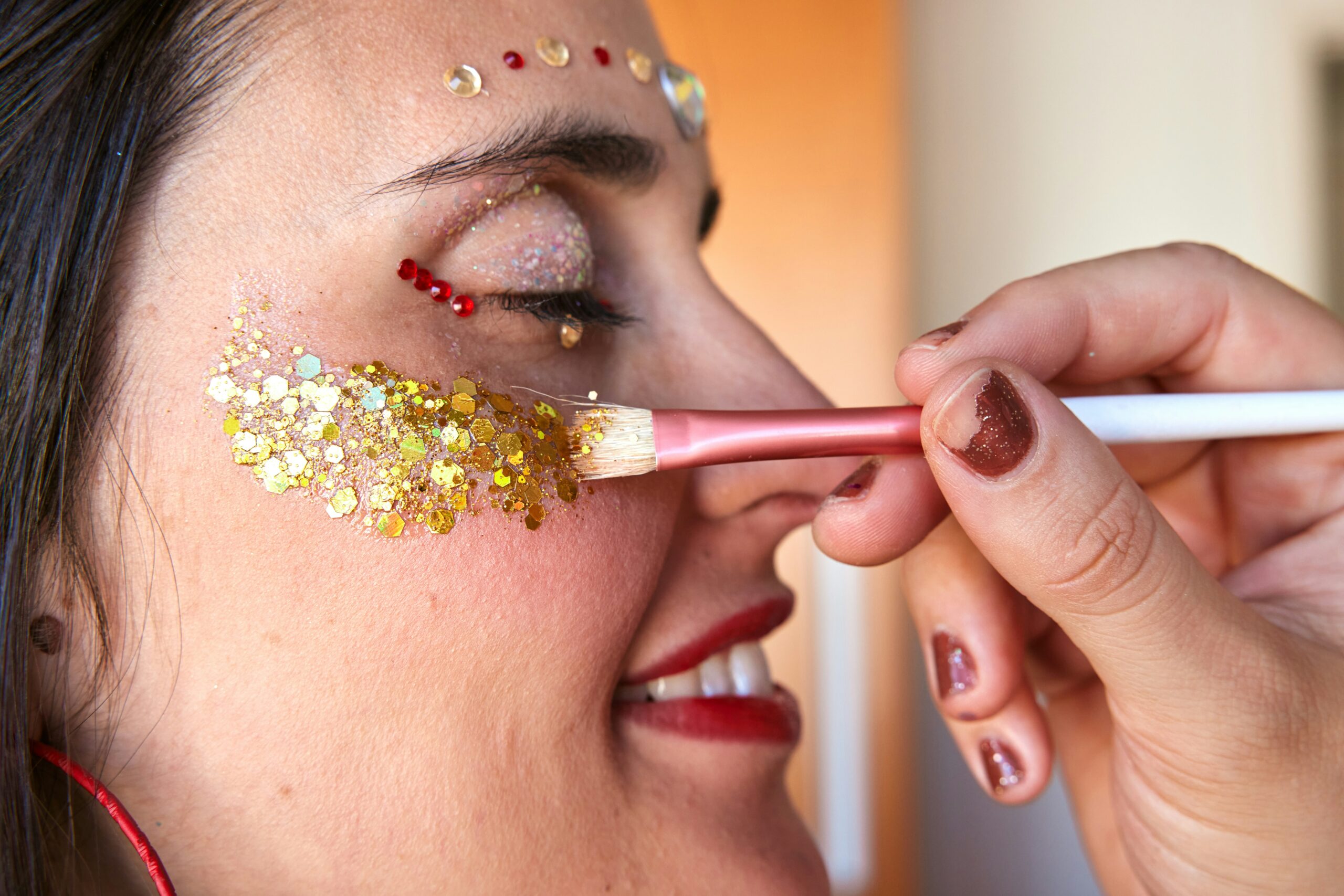Summer 2020. It was a lot. We all knew what was going on, what had been going on, for centuries in this country. The systemic racism, the over-policing of Black and Brown communities, the lack of justice shown to these communities, the disparities in healthcare, maternal health, education, socioeconomics, etc.
People who look like me knew this was going on. I had already had “the talk” with my two boys. But, because we were all home thanks to a global pandemic, we were forced to watch this all play out on our television screens.
Now the world knew and actually seemed to care. But that’s not where my story begins.
I moved back to Texas where I grew up, from Birmingham, Alabama in 2017 with my two young sons ages 9 and 8, along with my Birmingham-native husband. I gave birth to both of my children there and, although I could rattle off a list of disturbing experiences navigating both of my pregnancies (and in raising them in Birmingham for that matter), I was “comfortable” in those circumstances. This was the devil I knew.
My husband wanted more kids, but I figured it was not in the cards for us. We hadn’t been doing anything to prevent pregnancy, but it hadn’t happened. I was so confident that it wouldn’t happen that I gave away literally everything related to pregnancy and babies (think cribs, car seats, toys, bottle warmers, sanitizers, rockers, etc.) I teased my husband as I did this. Turns out the joke was on me. I was pregnant within three months of returning to Texas!
So here I am, 40, and pregnant.

Sure, I was from the area, but I had never been pregnant here. I didn’t know anything about the local doctors or hospitals and my father, a former OB/GYN and family practitioner who I learned on during my first two pregnancies, had passed away a few years earlier.
My mother was still in the area, but her 40-year-old daughter was pregnant. Clearly, she hadn’t navigated this process in any number of years that would have been helpful. Add to that, the disparities in the maternal health care that Black women receive compared to their white counterparts was just coming to light.
I was terrified.
I was overwhelmed at the thought of caring for a newborn at the age of 40. Times had changed. What was the new advice for moms? How would we adjust our lives to fit a baby? Many in my girlfriend group had completed their child-birthing years. Their children were the same age as my older two and that was enough for them.
To widen my motherhood circle, I joined an app for moms and found myself searching for Black moms in my area. I figured out that Black moms were searching for me too. The question became why? But really, I knew why.
As moms of Black children, we navigate a special set of circumstances. From doctors and caregivers to teachers and principals, police and other parents, and on, and on –– we have to advocate for our children uniquely. Because of the way children of color can be perceived, we find ourselves constantly navigating the potential of conscious or unconscious biases that a teacher, caregiver or justice officer may have.
That is why I was looking for other mothers of Black children. That is why they were looking for me—to connect. We were all looking for a space to vent, ask questions, give advice and share resources without constantly having to “explain” or tone down some of our rhetoric, so as not to offend others.
The more I connected with new moms, the more I realized that, just like my own special community of women, they had stories and questions, too. Some were out there figuring it out alone. Some women were the first to raise their children in predominantly white communities. There were white women raising children of color. Some just didn’t have that family, or sister-girlfriend circle, around them and felt like they were doing motherhood all on their own.
There is so much truth to that saying “it takes a village to raise a child”—and, while every woman deserves that village, it can be hard to find.
I started playing with the idea of creating that village and came up with the concept of Akina Connect. Akina means “strong family bond” in Swahili. It felt right—until, all of a sudden, it didn’t.
It was the spring and start of summer 2020, when Ahmaud Arbery was killed while jogging and Breonna Taylor killed while existing in her own home. Not to mention the countless others like Micheal Brown, Alton Sterling, Sandra Bland, Atiatana Jefferson, Eric Garner, Trayvon Martin, and Tamir Rice. CNN was on in our house 24/7.
And then it happened. We watched the police take the life of George Floyd on television. Eight minutes and 46 seconds. George called for his mother. His mother. I cried for weeks and I cried every time I looked at my kids—especially my newborn son. I cried with my friends and my husband.
A few months later, it was like a light switched on in my brain. I had to create Akina. There was no other choice.

How would I do this? What did I know about creating an app? Not much, but I was determined. And with determination comes resourcefulness.
My husband was coming off the tail-end of a tech startup in the skincare space. He suggested I start with the CTO of that company to get an idea of options for creating an app and the budget. He then connected me with someone to help with branding and social media to really build the community around the idea. I reached out to my friends and family and ended up raising enough to get started.
If I am being honest, without the support of my friends, family and most especially my husband, I would not have been able to do this. But because the cause resonated with so many in our community, doors were opened, relationships and partnerships were fostered and Akina came to fruition.
Akina is revolutionizing how Black mothers are connected and resourced by creating an intersection of technology and community. It is a social and professional networking platform that informs, educates, entertains, and connects Black women and mothers to the resources and information they need to be their best selves. It’s a place to turn to if you need to find a pediatrician, a therapist, or another new mom who is in the thick of it but who also looks like you.
It’s what I needed and I know many other new moms, especially new Black moms, also needed it.
Akina, which started as a social media app for Black moms, has morphed into so much more. It became my solution, my contribution, to making this world a better place for us all, starting with Black mothers.
And they’re right—it does take a village, even if that means adapting to find yours with a little help from technology.
Author
-

Leigh Higginbotham Butler is the Founder of Akina Connect — the first-of-its-kind professional and CaaS (Community-as-a-Service) app and platform that leverages culturally-competent AI and machine learning technology, while bringing together experts and organizations, to address disparities Black women face in their everyday lives. She currently lives in the Dallas areas with her husband and their three sons.
View all posts




